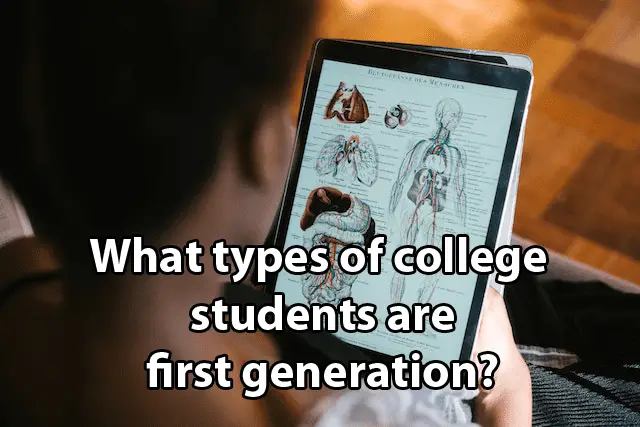
First-generation students face unique challenges when it comes to pursuing higher education. From navigating the college application process to managing the financial burden of tuition, these students often lack the resources and support systems that their peers may have. However, scholarships can be a game-changer for first-generation students, providing them with the financial assistance they need to access educational opportunities that may have otherwise been out of reach.
In this article, we will explore various scholarship opportunities available to first-generation students and how these scholarships can pave the way for a brighter future. From merit-based scholarships to need-based grants, there are numerous options for students looking to further their education. By taking advantage of these opportunities, first-generation students can not only achieve their academic goals but also break down barriers and create a more equitable society for future generations.
Merit-Based Scholarships
Merit-based scholarships are awarded based on academic achievement or other accomplishments, such as leadership roles or extracurricular activities. These scholarships are typically highly competitive but can provide significant financial support for students who excel in their studies. Many colleges and universities offer merit-based scholarships to incoming freshmen, as well as transfer students who demonstrate exceptional academic potential.
Examples of Merit-Based Scholarships:
- National Merit Scholarship Program: Awards scholarships to high school students who perform well on the PSAT/NMSQT exam.
- Coca-Cola Scholars Program: Recognizes high school seniors who demonstrate leadership and community service.
These scholarships not only provide financial assistance but also prestige and recognition for students who have worked hard to achieve academic success.
Need-Based Grants
Need-based grants are awarded based on a student’s financial need, as determined by their Free Application for Federal Student Aid (FAFSA) form. These grants do not have to be repaid and can help cover tuition, fees, and other expenses associated with attending college.
Examples of Need-Based Grants:
- Federal Pell Grants: Provide funding to undergraduate students from low-income families.
- Institutional Grants: Many colleges and universities offer these grants to students with demonstrated financial need.
By seeking out need-based grants and applying for financial aid early in the college admissions process, first-generation students can access the resources they need to succeed in college without taking on excessive student loan debt.
Diversity Scholarships
Diversity scholarships aim to support underrepresented groups in higher education, including first-generation college students. These scholarships may be targeted towards specific ethnicities, genders, or socioeconomic backgrounds in an effort to promote diversity and inclusion on college campuses.
Examples of Diversity Scholarships:
- Gates Millennium Scholars Program: Provides full tuition funding for minority students pursuing degrees in various fields.
- QuestBridge National College Match Program: Connects high-achieving low-income students with full-ride scholarships at top colleges and universities.
By applying for diversity scholarships targeted towards first-generation students, individuals can access educational opportunities that empower them to succeed academically and professionally.
Community Foundation Scholarships
Community foundations play a crucial role in supporting local communities through philanthropic initiatives, including scholarship programs for first-generation students. These foundations partner with donors and businesses to provide funding for college-bound individuals who demonstrate financial need or academic potential.
By researching community foundation scholarship opportunities in their area, first-generation students can uncover hidden gems that offer much-needed financial support for their educational pursuits. Whether it’s a scholarship funded by a local business or an endowment established by community leaders, these resources can make a meaningful impact on a student’s ability to afford college and achieve their long-term career goals.
Conclusion
Scholarships open doors for first-generation college students by providing them with the financial support they need to pursue higher education without undue burden or stress. From merit-based awards to need-based grants and diversity scholarships offered by community foundations, there are ample opportunities available for ambitious individuals looking to break through barriers and carve out a path towards success.
By taking advantage of these scholarship opportunities early on in the college admissions process and staying proactive in researching funding options, first-generation students can pave the way towards brighter futures filled with endless possibilities for growth and achievement.
FAQs
- How do I find scholarships specifically designed for first-generation college students?
- To find scholarships targeted towards first-generation college students, you can start by researching online databases like Fastweb or Scholarships.com that allow you to filter search results based on your unique circumstances.
- Are there any government-funded scholarship programs available specifically for first-generation college-goers?
- Federal programs like TRIO Student Support Services offer academic support services along with grant aid assistance designed specifically for low-income individuals, including those who are first-generation.
- Can I apply for multiple scholarships at once?
- Yes! It’s recommended that you apply widely to increase your chances of receiving funding from multiple sources, thus reducing your overall educational costs.
- What documents will I need when applying for scholarships?
- Commonly required documents include transcripts reflecting your grades achieved so far, letters of recommendation from teachers or community leaders, and any relevant personal statements or essays.
- Can I lose my scholarship after being awarded if my grades slip below acceptable levels?
- Yes, most granting bodies require recipients to maintain certain grade point averages. Therefore, it’s important to stay focused throughout your studies to keep up with such requirements and avoid losing your funding source.


















